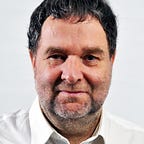World Refugee Day: Addressing Mental Health
Stumbling upon lockdowns and closed facilities in the past few months, it became even harder than usual to seek shelter for displaced people. Around 60% of asylum seekers encounter traumatic events before, during, or following arrival, while the occurrence of clinically relevant psychological distress is 20–30%. Just for Post Traumatic Stress Disorder (PTSD), refugees are up to 10 times more likely to develop this condition compared to the general population of their host countries. Therefore, our action to protect and help them is urgently needed.
Processing trauma is the key to the successful integration of refugees and a prerequisite for their ability to adapt and rebuild their lives. With growing numbers of people seeking refuge, supporting their mental health and well-being has become more crucial than ever. Unfortunately, the Covid-19 crisis is expected to cause a global surge in demand for professional mental health assistance. With the existing services already being under pressure, there will probably be little to no capacity to take additional measures for refugees.
Refival is focused on refugee integration in rural areas in Europe and limited access to specialist mental health assistance in the countryside has always been taken into account. Consequently, generic viable alternatives are equally considered. As a result, Refival primarily builds on community cohesion, but also intends to create rural facilities for trauma treatment in which professional mental health expertise is bundled with peer support. For refugees located in other rural and urban locations lacking these opportunities, a mixture of retreats and tele-counseling can be offered this way. Furthermore, in order to bridge the commonly occurring cultural and language gaps, Refival envisions educating and training refugees to become counselors. Finally, it has been actively exploring the use of new, technology-based, solutions that can potentially offer help and support to those in need.
Due to the Covid-19 virus outbreak, Refival’s original target to relocate Syrian war-refugee families to European villages is unfortunately no longer feasible. Since rural communities dominantly consist of elderly people, this situation will likely remain until a cure or Covid-19 vaccines become readily available. However, if funding is obtainable, two existing collaborations Refival is currently involved with will continue developing support tools for mental health issues.
The first collaboration of Refival is with the Coalition for Work With Psycho-trauma & Peace (CWWPP) in Croatia. Their Pragmatic Empowerment Training (PET) is a method focusing on increasing community-based assistance in mental health and peacebuilding. CWWPP trains “barefoot-therapists” who offer supervised support to traumatized families and victims of war in former Yugoslavia. Using 25 years of experience, it has developed educational materials and it works with individuals and groups both in person and online. With some cultural adaptation, CWWPP’s broad expertise can be applied to help refugees and the communities that are “incubating” them. Finally, PET can be relatively easily scaled to reach more people or to be implemented in other geographical settings. However, project based funding is required to do so.
Refival’s second collaboration is with a multi-disciplinary group of innovators developing Tranxiety, a computer application aiming to use biofeedback to help handling and reducing anxiety. The software measures EEG signals via a Brain Computer Interface (BCI) and uses the real-time information it continuously gathers to interact with its users. Tranxiety teaches patients how to control anxiety triggers and regulate their fear-response. Different from already existing relaxation apps that use a BCI, it attempts to evoke stress before reducing it, an approach which has similarity with virtual reality assisted exposure therapy (VRET) for PTSD. Although a roadmap is in place and a first proof of concept available, extensive clinical research will still be needed in order to meet safety requirements. It is currently estimated that it will take 2 years for a team of 10 people to build a basic platform that is adequate for therapeutic application. After accomplishing this, ample potential to expand Tranxiety’s treatment areas can be expected. The goal is to support refugees and let them become a vital part of our society. This can be achieved by creating a wide range of solutions for individuals and by determining therapies that can be applied in professionally facilitated group settings. The bottleneck is project-financing. In order to maximize the outreach, funding should preferably be obtained from public or not-for-profit sources.
Imagination and passion are Refival’s strength. Unfortunately, as structural solutions addressing the mental health of refugees are underdeveloped, Refival would find it disappointing to witness the already existing developments and successful initiatives to be hindered by the lack of funding, especially as their results could be applicable to other groups of vulnerable people and are an excellent financial investment in society as well.
Your assistance or advice can be crucial for changing the lives of many and is therefore urgently required. Please contact me if you are interested in engaging in Refival‘s mission. If you are aware of any sponsoring or project financing options, please also involve us. Finally, support our vision by sharing my materials with people who may be interested in joining the project and see the refugee community transformed into a healthier one.
